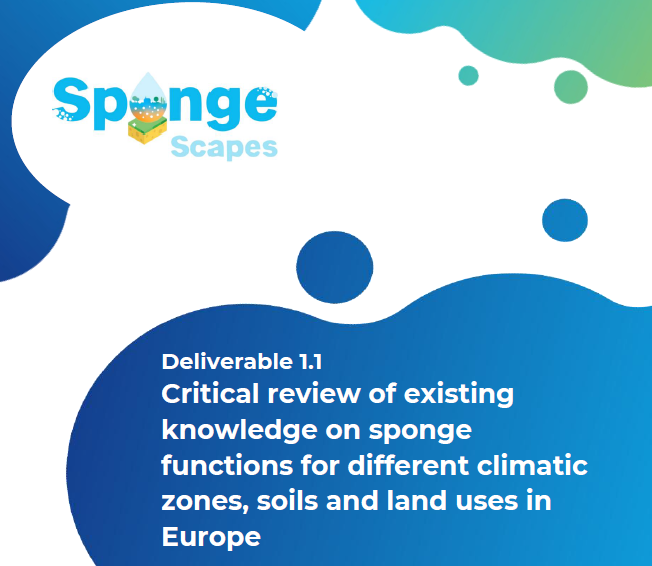The SpongeScapes project has released its first major deliverable: "Critical review of existing knowledge on sponge functions for different climatic zones, soils and land uses in Europe."
This comprehensive review offers a much-needed synthesis of the scientific literature and practical knowledge surrounding sponge measures. It covers how these measures perform across different environmental contexts — and just as importantly, where knowledge is still missing.
8 key knowledge gaps identified
Despite promising examples across Europe, sponge measures are often still deployed in fragmented or under-assessed ways. Our review identified the following gaps:
- Limited testing under a variety of hydro-meteorological events — including future climate conditions.
- Disjointed analysis of water systems — surface water, groundwater, and soil are rarely assessed together.
- Few evaluations of combined effects: hydrology, biodiversity, water quality, co-benefits and trade-offs.
- Lack of evidence on how multiple measures interact at the landscape scale.
- Unclear longevity and effectiveness over time due to limited maintenance data.
- Poor reporting on local context and replicability of measures.
- Insufficient integration of science with stakeholder engagement on a catchment scale.
- Valuable local knowledge and success stories often remain unpublished or isolated.
7 key recommendations
To support more strategic, science-based implementation of sponge measures across Europe, we propose:
- Integrated evaluations across floods, droughts, and their trade-offs using consistent indicators
- Hydro-soil systems thinking: assess both (ground)water and soil impacts together
- Opportunity mapping to identify promising areas for sponge measures in co-creation with local stakeholders
- Cost-benefit analysis using tangible, relatable indicators
- Monitoring as an essential part of all sponge measure design and maintenance
- Better communication of lessons learned to practitioners and the public — not just researchers
Read the full report https://zenodo.org/records/15804177
